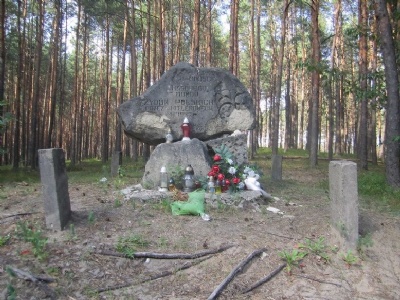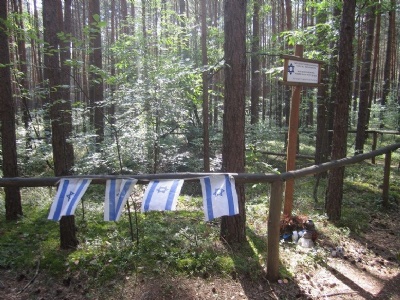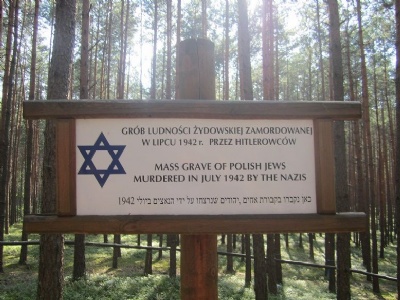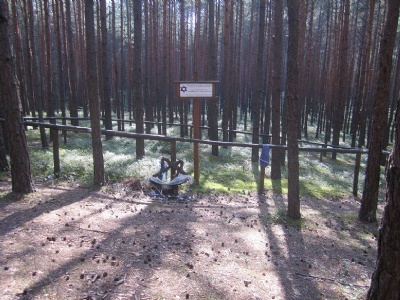Jozefów
Early in the morning of July 13, 1942, police battalion 101 arrived in the small village of Jozefow in south-eastern Poland. The commander Major Wilhelm Trapp gathered his men and told, obvious affected, that the battalion had received a very unpleasant order which meant that the village’s Jews would be executed, including women and children. He told them that he did not like the order at all but that it still had to be carried out. In order to legitimize the content of the order, he told his men that german women and children had suffered and died during allied air strikes over german cities and that Jews about to be killed were partisans, or at least supported partisans. He told them that the Jews would be rounded-up and young Jewish men would be deported to work. The others would be shot.
Then Trapp asked if there was anyone within the group who did not want to carry out the order and asked them to come forward. After a while, about ten men had signed up and handed in their weapons. Trapp then told them to step aside and wait for new orders. When no more men came forward, Trapp assembled his officers and handed out the orders. Some were given the task of creating a ring around the village and making sure that no one escaped. Anyone who tried to escape would be shot. The rest were tasked with rounding up the Jews and bringing them to the village marketplace. Jews who for one reason or another could not be brought to the marketplace would be shot on the spot. When this was done, Jews selected for slave labor were taken away. The others was ordered to get up on trucks and transported away to a forest area west of the village. There, the Jews were shot in pre-digged pits.
Those who committed the murders found it easier to kill those who looked weak and sick while they found it more difficult to shoot, for example, children. Some of the members solved this moral psychological dilemma by first shooting the child’s mother and then the child. This made it easier for them to shoot the baby if the mother was dead because a child would not be able to cope without their mother. Several officers motivated their men to continue, but those who were no longer able to cope with the task and asked to be redeemed were granted this.
Instead, they were given other duties such as guarding the Jews at the assembly point before they were brought to the execution site, other tasks could be bringing the Jews to the execution site where they were then handed over to the shooter. Those who no longer wanted to take part in the action were not penalised by their superiors. The massacre lasted all day and by the time it was completed, about 1,500 Jewish men, women and children had been murdered by what author Christopher Browning describes as ordinary men.
Current status: Monument (2013).
Location: 50° 28' 55.64" N 23° 02' 00.82" E
Get there: Car.
Follow up in books: Browning, Christopher: Ordinary men (1992).




Police battalion 101 consisted of men from Hamburg and its surroundings. Before the war they worked as police officers, they were middle-age and thus a group Nazi propaganda did not adress. They were considered unsuitable for military service, most had families, they were not dedicated Nazis although about 25 percent of them were members of the Nazi party. They were law abiding citizenz and showed no signs of suffering from any mental illness. In other words, there was nothing in these men that fit the nid picture of the bloodthirsty Nazi, rather they were just ordinary men.
The reason why they nevertheless participated both directly and indirectly in the killings was largely due to something as simple as group pressure. Several members felt that there was a group pressure and therefore participated. For many of them, it was an unpleasant feeling to possibly end up outside the group in a hostile country far from home. Browning’s investigation into Police battalion 101 also shows that the threat of the death penalty for those who refused to commit murder is not true. The conclusion of Browning is that a person, regardless of origin, background and political beliefs, cannot know in advance how he will act in an extreme environment. To find out we have to be placed in such an environment and the answer might turn out to be an answer we never thought we were capable of.